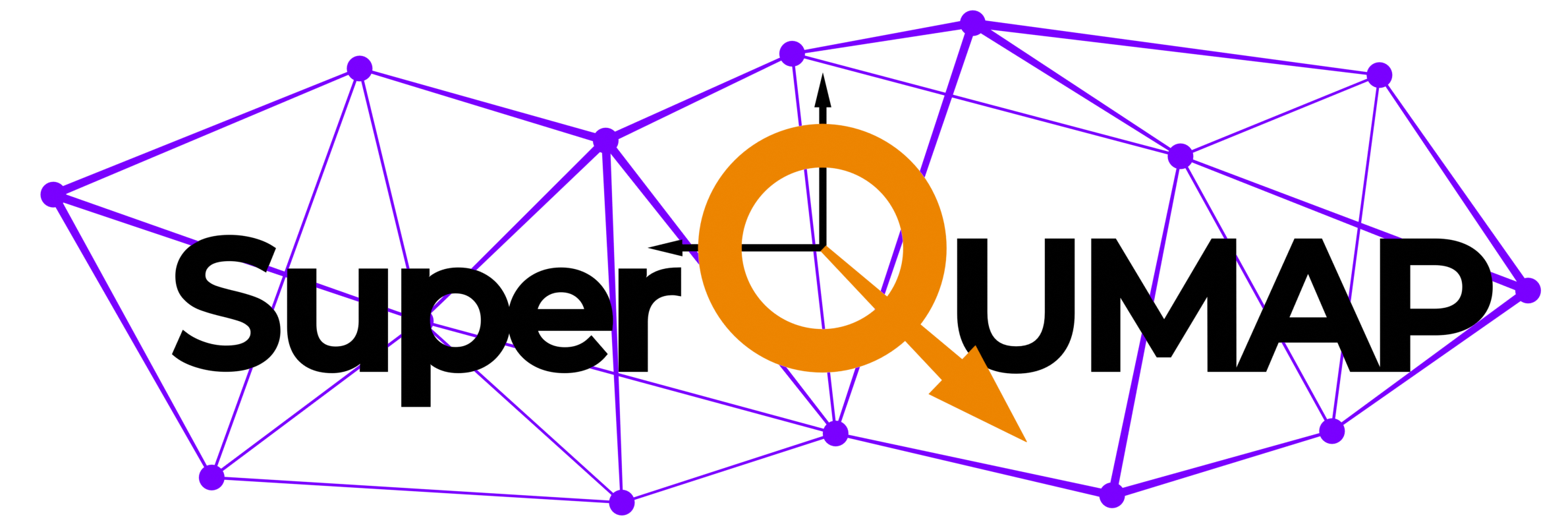Final schedule
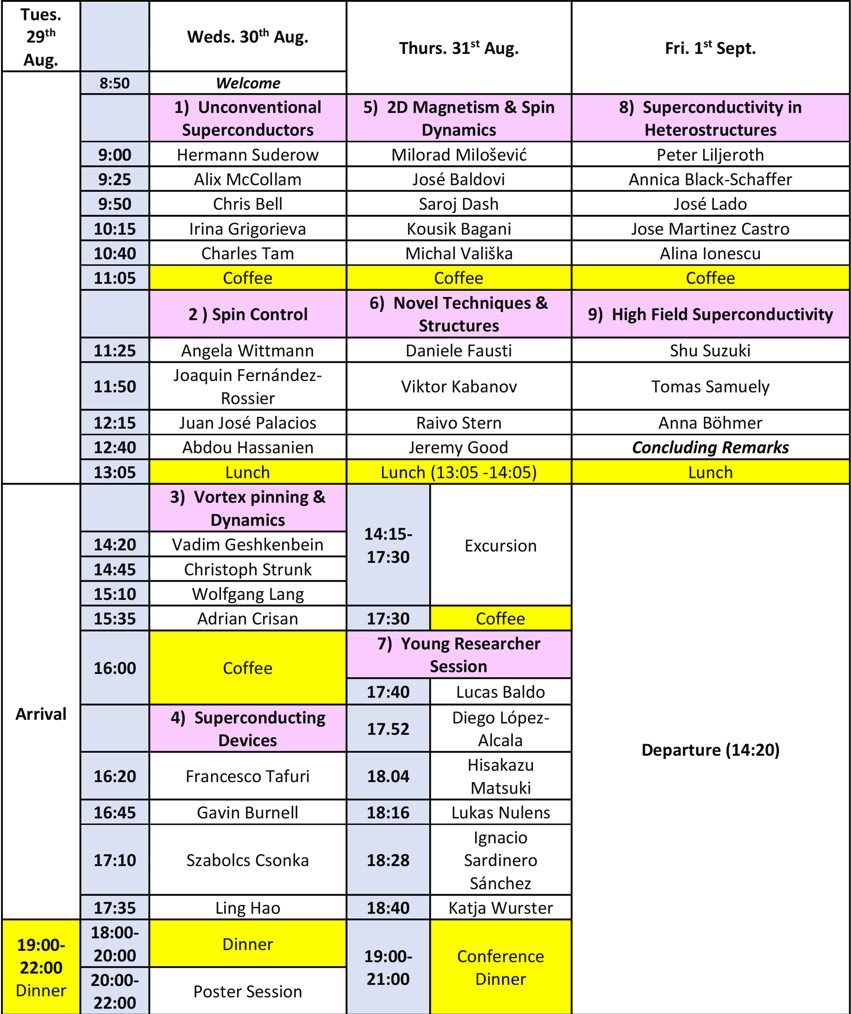
Abstract book. Sway link to abstract book here.
Important dates
- August 29th: arrival in Bath (dinner around 7 pm).
- August 30th – September 1st: workshop.
- September 1st: departure (after lunch around 2 pm).
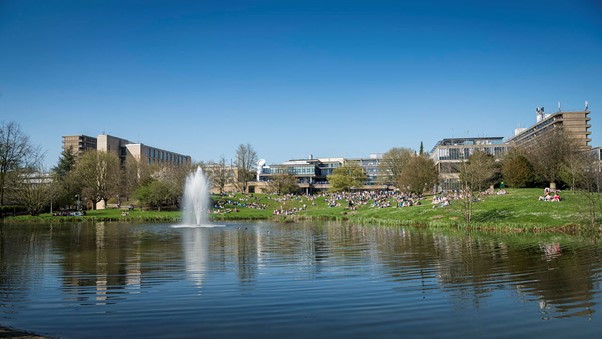
Aims and scope
The International Workshop on Superconductivity and Magnetism in Two Dimensional Films and Heterostructures is organized in the framework of COST action CA21144 and will focus on recent advances in materials design in atomic layers, thin films and heterostructures.
The discovery of superconductivity and correlated insulating states in twisted bilayer graphene has stimulated a flurry of activities in related van der Waals materials. The creation of heterostructures consisting of single layers of different materials combined with a controlled twist has been demonstrated to lead to highly tunable and novel behaviors. These new activities suggest a new platform for “designer” heterostructures, or “designer quantum materials”. By characterizing and controlling the interactions between different layers, or the interaction between monolayers and a substrate, one can envisage creating materials with unique properties. Topical examples include dramatically increased critical temperatures in monolayer FeSe or Ising superconductivity in transition metal dichalcogenide monolayers. In addition, the combination of magnetic films with superconductors in hybrid structures provides a route towards tunable Josephson junctions (pi and phi junctions) and the realization of new magnetic devices. Advances in thin film technologies are now enabling the realization of controllable systems where the superconducting order parameter becomes entangled with magnetic degrees of freedom. This workshop will provide an interdisciplinary arena for discussion about these and related activities with the overall aim to motivate collaborations and ultimately the development of new superconducting devices and behaviors in quantum materials.
The Workshop topics will include (but are not limited to):
- Two-dimensional materials: superconductivity and magnetism.
- Thin film heterostructures.
- Superconductivity and magnetism in iron-based materials and pnictides.
- Low carrier concentration quantum materials, heterostructures and devices.
- Junctions and Josephson physics.
- SQUID technology and applications.
- Novel developments in thin film deposition.
- Spin orbit and Rashba physics.
- Density functional calculations of interfaces and quantum materials.
- Photoemission and normal state property measurements.
- Advanced techniques: nanoscale imaging, high pressures and strain.
The meeting will take place in the East Building on the University of Bath campus, about 30 km away from Bristol International Airport.
We will welcome participants during the afternoon of August 29th. The scientific programme will start on the morning of August 30th and continue until September 1st around lunchtime.
Registration
All interested participants should register and submit an abstract before 1st July 2023 using the form linked here.
Please download and complete the Registration and Abstract form and submit it per email to 2dsupmag@gmail.com.
No registration fee will be raised for participants of the countries included in the COST Action. We will communicate the level of support together with abstract acceptance during the first week of July 2023.
Invited speakers
Baldoví, Jose (Valencia, Spain)
Bagani, Kousik (Basel, Switzerland)
Banerjee, Niladri (London, UK)
Black-Schaffer, Annica (Uppsala, Sweden)
Böhmer, Anna (Bochum, Germany)
Crisan, Adrian (Bucharest, Romania)
Csonka, Szabolcs (Budapest, Hungary)
Dash, Saroj (Chalmers, Sweden)
Fausti, Daniele (Erlangen-Nürngberg, Germany)
Fernández Rossier, Joaquin (INL Braga, Portugal)
Geshkenbein, Dima (Zurich, Switzerland)
Grigorieva, Irina (Manchester, UK)
Hassanien, Abdou (Jozef Stefan Institute, Slovenia)
Ionescu, Alina (NIMP Bucharest, Romania)
Kabanov, Victor (Ljubljana, Slovenia)
Lado, Jose (Aalto, Finland)
Lang, Wolfgang, (Vienna, Austria)
Martinez, Jose (Aachen, Germany)
McCollam, Alix (Cork, Ireland)
Milosevic, Milorad (Antwerp, Belgium)
Moschopulou, Evangelia (Agia Pareskevi, Greece)
Palacios, Juan José (Madrid, Spain)
Samuely, Tomas (Kosice, Slovakia)
Stern, Raivo (Tallin, Estonia)
Suderow, Hermann (Madrid, Spain)
Suzuki, Shu (Twente, The Netherlands)
Vališka, Michal (Prague, Czech Republic)
Tafuri, Francesco (Naples, Italy)
Wittmann, Angela (Mainz, Germany)
Accomodation
All participants should make their reservation of full board and accomodation before 4th August 2023. All instructions will have been sent per email before the 12th July. If you did not receive the instructions or have any question, please write to 2dsupmag@gmail.com, and copy superqumap.meetings@uam.es.
Venue
The University of Bath
The Workshop will take place in the East Building on the Claverton Down campus of the University of Bath. A map of the campus can be found at University of Bath Map. Accommodation is available in student accommodation blocks which are within easy walking distance from the East Building.
The City of Bath
Bath is a beautiful historic city situated on the River Avon in the southwest of England. Its striking architecture of sweeping Georgian terraces and Roman baths combines to produce one of the most elegant sights in Europe and Bath was designated a World Heritage Site in 1987. It has a variety of theatres, museums, and other cultural and sporting venues, which have helped to make it a major centre for tourism.
How to get there
By Air
Bristol Airport is only 30km away from the University of Bath and it is possible to get cheap flights to Bristol from many parts of Europe (e.g., on Easyjet and Ryanair). We recommend this option if suitable flights exist.
i) The quickest way from Bristol Airport to the University is by taxi. This is a 30-40 minute drive that will cost approximately £60. If there are three or more of you travelling together this is probably also the cheapest option.
ii) There is a direct bus service to the centre of Bath (Air Decker) from Bristol International Airport that takes about 60 minutes depending on the time of day (£16.50 single, £22 return). Bath is also readily accessible from London Heathrow Airport with various alternatives for travelling on to Bath.
i) There is a regular RailAir Link coach service between all Heathrow terminals and Reading rail station for most of the day. From Reading, catch a train (Great Western Railway) to Bath Spa. Trains go almost hourly and the journey time is about an hour.
ii) Alternatively, take the Heathrow Express rail link from the airport to London Paddington station, and get the train Great Western Railway) from there to Bath (which takes about a hour and a half). This is slightly more convenient but will cost more at peak times. (N.B., You might be able to save money by buying rail tickets well in advance.)
iii) Finally a National Express coach service operates from London Heathrow to Bath Bus Station. It departs from London Heathrow central bus station which is next to Terminal 2. This is the cheapest option but the journey time to Bath is approximately two and a half hours, depending on traffic conditions. N.B., to be sure of a seat on a particular connection, it is best to book tickets in advance.
By Rail
Many European cities are well linked to London St Pancras International Station via the Eurostar channel tunnel service. From there it will be necessary to get additional tickets issued to cover the London Underground service to Paddington Station and the Great Western Railway rail service from Paddington to Bath Spa.
After arriving in Downtown Bath
From the centre of Bath it is a short ride by taxi or U1 Bus (approx. 12 mins) out to the University of Bath campus.
Organizers
Simon Bending (Bath, UK)
Jason Robinson (Cambridge, UK)
Sara Dale (Bath, UK)
Joe Wilcox (Bath, UK)
Scientific committee
Jan Aarts (The Netherlands)
J. Albino Aguiar (Brazil)
Yonathan Anahory (Israel)
Niladri Banerjee (UK)
Satyajit Banerjee (India)
Nevin Barisic (Croatia)
Annica Black-Schaffer (Sweden)
Anna Boehmer (Germany)
Alexandre Bouzdine (France)
Amalia Coldea (UK)
Adrian Crisan (Romania)
Szabolcs Csonka (Hungary)
Hugo Dil (Switzerland)
Vladimir Fomin (Moldova)
Katharina Franke (Germany)
Francesco Giazotto (Italy)
Irina Grigorieva (UK)
Jean-Claude Grivel (Denmark)
Isabel Guillamon (Spain)
Kun Rok Jeon (South Korea)
Victor Kabanov (Slovenia)
Kazuo Kadawaki (Japan)
Eun-Ah Kim (USA)
Dieter Koelle (Germany)
Wolfgang Lang (Austria)
Nenad Lazarevic (Serbia)
Chuan Li (The Netherlands)
Peter Liljeroth (Finland)
Jacob Linder (Norway)
Oded Millo (Israel)
Milorad Milosevic (Belgium)
Alberto Morpurgo (Switzerland)
Anna Palau (Spain)
Charis Quay (France)
Peter Samuely (Slovakia)
Cem Sevik (Turkey)
Alejandro Silhanek (Belgium)
Francesco Tafuri (Italy)
Jana Kalbacova Vejpravova (Czech Republic)
Javier Villegas (France)
And the Scientific Committee of the COST Action
See here.
Grant manager
Irene González Martín (Universidad Autónoma de Madrid). For any additional questions, please send an email to 2dsupmag@gmail.com.
